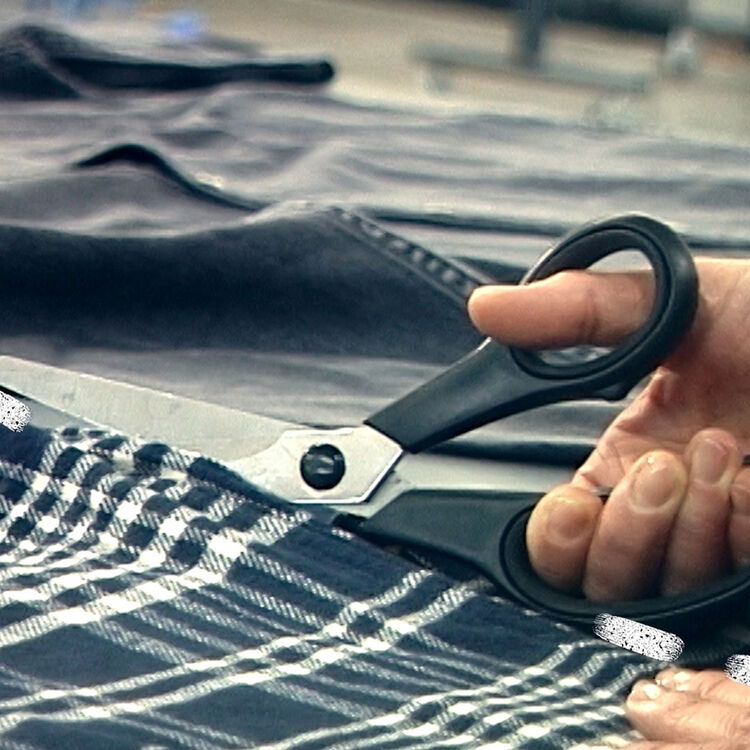Diesel Flatbed Trucks For Sale: Your Ultimate Guide to Power, Versatility, and Value pickup.truckstrend.com
In the demanding world of logistics, construction, landscaping, and agriculture, the right vehicle can make all the difference. Among the myriad of commercial transport options, the diesel flatbed truck stands out as a true workhorse, renowned for its immense power, unparalleled versatility, and rugged durability. Whether you’re hauling heavy machinery, transporting building materials, delivering goods, or simply need a reliable vehicle for diverse tasks, a diesel flatbed offers a robust solution that few others can match.
This comprehensive guide delves deep into the world of diesel flatbed trucks for sale, providing essential insights for anyone considering this indispensable asset. We’ll explore why these trucks are a preferred choice, what to consider before making a purchase, where to find them, and how to ensure you get the best value for your investment.
Diesel Flatbed Trucks For Sale: Your Ultimate Guide to Power, Versatility, and Value
Why Choose a Diesel Flatbed Truck? The Unmatched Advantages
The decision to invest in a diesel flatbed truck is often driven by a need for serious capability. Here’s why these vehicles are a top choice for businesses and individuals alike:
- Superior Torque and Power: Diesel engines are engineered to produce significantly more torque than their gasoline counterparts, especially at lower RPMs. This makes them ideal for hauling heavy loads, navigating challenging terrains, and pulling large trailers with ease.
- Exceptional Fuel Efficiency (Under Load): While gasoline engines might seem cheaper initially, diesel engines often offer better fuel economy, particularly when operating under heavy loads. Their efficiency at higher weights translates to lower operational costs over time, especially for long-haul or frequent heavy-duty tasks.
- Durability and Longevity: Diesel engines are built to withstand immense stress and are designed for a longer lifespan than most gasoline engines. With proper maintenance, a diesel flatbed can reliably serve for hundreds of thousands, or even a million, miles.
- Versatility of the Flatbed: The open, unobstructed bed provides unparalleled flexibility for loading and transporting irregularly shaped, oversized, or heavy items that would be difficult or impossible to fit into a traditional pickup bed or enclosed trailer. It allows for easy side and top loading using forklifts, cranes, or manual labor.
- Higher Resale Value: Due to their durability and demand in commercial sectors, diesel trucks generally hold their value better than gasoline models, offering a stronger return on investment.
- Towing Prowess: Coupled with their high torque, many diesel flatbed trucks come with impressive towing capacities, often exceeding 20,000 pounds for medium-duty models, making them perfect for gooseneck trailers, fifth-wheel setups, and large equipment transport.

Key Considerations When Buying a Diesel Flatbed Truck

Purchasing a diesel flatbed truck is a significant investment that requires careful thought. Here are the crucial factors to consider:
- Gross Vehicle Weight Rating (GVWR) & Payload Capacity: This is paramount. The GVWR indicates the maximum operating weight of the truck, including the vehicle itself, its passengers, fuel, and cargo. The payload capacity is the maximum weight your truck can carry. Always ensure the truck’s capacity exceeds your typical load requirements to avoid overloading, which can be dangerous and lead to premature wear.
- Engine Specifications: Research the specific diesel engine (e.g., Cummins, Power Stroke, Duramax, Detroit Diesel) for its reputation, common issues, and maintenance requirements. Consider horsepower and torque figures relative to your anticipated workload.
- Transmission Type: Automatic transmissions offer ease of driving, especially in stop-and-go traffic, while manual transmissions can provide more control and are often preferred for heavy towing or specific terrains by experienced drivers.
- Flatbed Dimensions and Material: Measure the bed length, width, and height of the cab if clearance is an issue. Flatbeds are commonly made of steel (durable, heavy), aluminum (lighter, corrosion-resistant, more expensive), or wood (traditional, repairable, requires more maintenance). Consider if you need stake pockets, D-rings, headache racks, or under-bed toolboxes.
- Towing Capacity: If towing is a primary use, verify the truck’s Gross Combined Weight Rating (GCWR), which is the maximum allowable weight of the truck and its loaded trailer. Ensure the hitch type (bumper pull, gooseneck, fifth wheel) matches your needs.
- Maintenance History (Especially for Used Trucks): A detailed service record is invaluable. It indicates how well the previous owner cared for the vehicle, crucial for diesel engines. Look for consistent oil changes, filter replacements, and attention to emissions systems (DEF, DPF).
- Mileage and Hours: For used trucks, low mileage is generally good, but consider engine hours as well, especially for trucks that idle frequently (common in commercial use). High mileage isn’t always a deal-breaker if maintenance was diligent.
- Rust and Corrosion: Inspect the frame, suspension components, brake lines, and the flatbed itself for signs of rust. This is especially critical for trucks from areas with harsh winters or coastal environments.
- Tires and Suspension: Check tire tread depth and wear patterns. Uneven wear can indicate alignment issues or suspension problems. Test the suspension for excessive bounce or sagging, particularly if the truck has consistently carried heavy loads.
- Emissions Systems: Modern diesel trucks are equipped with complex emissions systems (Diesel Particulate Filters – DPF, Selective Catalytic Reduction – SCR with Diesel Exhaust Fluid – DEF). Understand their maintenance needs and potential costs.

Types of Diesel Flatbed Trucks
Diesel flatbed trucks come in various classes, each designed for different levels of work:
-
Light-Duty Diesel Flatbeds (Class 2b & 3):
- Examples: Ford F-250/F-350/F-450 (pickup chassis with flatbed conversion), Ram 2500/3500/4500 (with flatbed), Chevrolet Silverado 2500/3500/4500 (with flatbed).
- Description: These are essentially heavy-duty pickup trucks converted with a flatbed. They offer a good balance of power, maneuverability, and comfort, suitable for personal use, small businesses, and lighter commercial tasks.
- Typical GVWR: 10,001 – 14,000 lbs.
- Ideal For: Landscapers, construction contractors (hauling tools, smaller equipment), general hauling, personal heavy-duty use.
-
Medium-Duty Diesel Flatbeds (Class 4-6):
- Examples: Ford F-550/F-650, Ram 5500, Chevrolet Silverado 5500/6500, Freightliner M2, Isuzu NPR HD, Hino 195.
- Description: Built on a more robust commercial chassis, these trucks offer significantly higher payload and towing capacities than light-duty models. They often feature stronger frames, larger brakes, and more powerful engines.
- Typical GVWR: 14,001 – 26,000 lbs.
- Ideal For: Medium-sized construction companies, delivery services, utility companies, equipment rental businesses, agricultural operations.
-
Heavy-Duty Diesel Flatbeds (Class 7-8):
- Examples: Peterbilt, Kenworth, Volvo, Mack, Freightliner (larger models with custom flatbed upfits).
- Description: These are the largest commercial trucks, often configured as straight trucks with specialized flatbeds (e.g., rollback car haulers, heavy equipment transporters, crane trucks). They are designed for maximum payload and continuous heavy-duty work.
- Typical GVWR: Over 26,000 lbs.
- Ideal For: Large-scale construction, heavy equipment transport, specialized logistics, oil and gas industry.
Where to Find Diesel Flatbed Trucks For Sale
The market for diesel flatbed trucks is diverse, offering options for every budget and need:
- Commercial Truck Dealerships: Both new and used. These dealers specialize in commercial vehicles, offer financing, warranties (on new trucks), and often have a dedicated service department.
- Online Marketplaces:
- Specialized Commercial Sites: TruckPaper.com, CommercialTruckTrader.com, MyLittleSalesman.com. These platforms list thousands of commercial vehicles, including flatbeds, from dealers and private sellers nationwide.
- General Classifieds: eBay Motors, Craigslist, Facebook Marketplace. You can often find good deals from private sellers, but exercise caution and always verify information.
- Auctions:
- Public Auctions: Government surplus auctions, fleet liquidation auctions, and general public auto auctions. Can yield significant savings but require quick decision-making and often "as-is" purchases.
- Online Auction Platforms: Ritchie Bros. Auctioneers, IronPlanet, Purple Wave.
- Private Sellers: Local classifieds, word-of-mouth, or direct contact with businesses upgrading their fleet. This can offer negotiation flexibility.
The Buying Process: New vs. Used
Deciding between a new and used diesel flatbed truck involves weighing costs against benefits:
Buying New:
- Pros: Full manufacturer warranty, latest technology and safety features, customizable options, no prior wear and tear, often easier financing.
- Cons: Higher initial cost, rapid depreciation in the first few years.
- Process: Visit a dealership, discuss your needs, select options, arrange financing, take delivery.
Buying Used:
- Pros: Significant cost savings, slower depreciation, wider selection of models/years, often immediate availability.
- Cons: No manufacturer warranty (or limited), potential for hidden mechanical issues, unknown maintenance history (if records are missing), potentially older technology.
- Process:
- Define Your Needs & Budget: Be clear about the truck’s purpose and how much you can spend.
- Research Models: Identify reliable makes and models within your budget.
- Search & Filter: Use online platforms to find suitable trucks.
- Review Listings Thoroughly: Look at photos, read descriptions, and note down questions.
- Contact Seller: Ask for maintenance records, VIN, and arrange a viewing.
- Perform a Thorough Inspection:
- Exterior: Rust, body damage, tire condition, flatbed integrity (cracks, welds, wood rot).
- Interior: Dashboard warnings, HVAC, electrical components, seat condition.
- Engine Bay: Leaks, fluid levels, belt condition, battery terminals, signs of previous repairs.
- Underneath: Frame integrity, suspension components, exhaust system, brake lines, differential.
- Pre-Purchase Inspection (PPI) by a Certified Mechanic: This is crucial for used diesel trucks. A diesel specialist can identify potential major issues that an untrained eye might miss.
- Test Drive: Pay attention to engine performance (acceleration, power), transmission shifts, braking, steering, and any unusual noises. Test under conditions similar to your intended use (e.g., with a heavy load if possible).
- VIN Check: Use services like Carfax or AutoCheck to review accident history, odometer discrepancies, and title issues.
- Negotiate Price: Based on your findings from inspection and market research.
Financing Your Diesel Flatbed Truck
Financing options are available for both new and used trucks:
- Bank Loans & Credit Unions: Often offer competitive rates if you have good credit.
- Dealership Financing: Convenient, but compare their rates with other lenders.
- Commercial Leases: Can be a good option for businesses, offering tax advantages and lower upfront costs.
- SBA Loans: Small Business Administration loans can help small businesses secure financing.
Prepare your financial documents, including business plans, credit history, and income statements, to streamline the application process.
Maintenance Tips for Diesel Flatbed Trucks
Proper maintenance is the cornerstone of a long-lasting diesel flatbed:
- Adhere to Service Schedules: Follow the manufacturer’s recommended maintenance intervals for oil changes, filter replacements (oil, fuel, air), and fluid checks. Diesel engines have specific oil requirements.
- Monitor Diesel Exhaust Fluid (DEF) & DPF: Ensure DEF levels are always adequate. Pay attention to DPF regeneration cycles and warning lights. Neglecting these can lead to costly repairs.
- Fuel Quality: Use high-quality diesel fuel and consider fuel additives, especially in cold weather, to prevent gelling.
- Tire Care: Regularly check tire pressure, rotate tires, and inspect for wear to ensure safety and fuel efficiency.
- Brake System: Inspect brakes frequently, especially if you carry heavy loads or tow.
- Cooling System: Ensure coolant levels are correct and the system is free of leaks.
- Chassis Lubrication: Grease all appropriate points on the chassis, suspension, and steering components.
- Flatbed Inspection: Regularly check the flatbed for structural integrity, rust, loose bolts, and ensure all tiedown points are secure and functional.
Estimated Price Ranges for Diesel Flatbed Trucks
It’s important to note that prices for diesel flatbed trucks vary significantly based on make, model, year, mileage, condition, engine type, transmission, flatbed features, and market demand. The table below provides a general estimated range to help with budgeting. Always conduct thorough research for specific models and local market conditions.
| Category | Condition | Estimated Price Range (USD) | Key Factors Influencing Price |
|---|---|---|---|
| Light-Duty Flatbeds | Used | $20,000 – $60,000+ | Age, mileage, engine health, 4×4 vs. 2WD, specific model (F-350, Ram 3500), flatbed material (steel vs. aluminum), added features (toolboxes, headache rack). Higher end for newer, low-mileage models. |
| (e.g., F-350, Ram 3500) | New | $60,000 – $90,000+ | Trim level, optional packages (towing, luxury), engine upgrade, custom flatbed upfit. |
| Medium-Duty Flatbeds | Used | $30,000 – $90,000+ | Age, mileage, hours, engine type, transmission type, specific chassis model (F-550, M2, Isuzu), GVWR, condition of emissions system, hydraulic systems (if equipped), flatbed type (standard, dump, rollback). |
| (e.g., F-550, Freightliner M2) | New | $80,000 – $150,000+ | Chassis model, custom flatbed body builder, engine/transmission options, specialized equipment (cranes, lifts), advanced driver-assistance systems. Prices can go much higher for highly customized units. |
| Heavy-Duty Flatbeds | Used | $50,000 – $180,000+ | Age, mileage, engine and transmission condition, specific manufacturer (Peterbilt, Kenworth), sleeper vs. day cab, axle configuration, specialized flatbed (e.g., heavy haul, lowboy), maintenance history. |
| (e.g., Peterbilt, Kenworth) | New | $150,000 – $350,000+ | Level of customization, engine power, luxury features, specialized heavy-haul flatbed attachments, advanced safety features, manufacturer incentives. Can easily exceed $400,000 for highly specialized, top-tier models. |
Note: These ranges are illustrative and can fluctuate based on market dynamics, regional demand, and the specific condition of the vehicle. Always verify current market prices.
Frequently Asked Questions (FAQ) About Diesel Flatbed Trucks
Q1: What are the main benefits of choosing a diesel flatbed over a gasoline one?
A1: Diesel engines offer superior torque for heavy hauling, better fuel efficiency under load, greater durability and longevity, and generally higher resale value.
Q2: How much payload can a typical diesel flatbed truck carry?
A2: Payload capacity varies significantly. Light-duty models (e.g., F-350) might carry 3,000-7,000 lbs. Medium-duty trucks (e.g., F-550) can carry 8,000-15,000 lbs, while heavy-duty trucks can carry 20,000 lbs or much more, depending on their GVWR and configuration.
Q3: What’s the difference between a light-duty and a medium-duty diesel flatbed?
A3: The primary difference is their Gross Vehicle Weight Rating (GVWR) and the robustness of their chassis and components. Light-duty trucks are based on heavy-duty pickup chassis, while medium-duty trucks are built on more substantial commercial truck chassis, designed for higher capacities and more rigorous commercial use.
Q4: Is it better to buy a new or used diesel flatbed truck?
A4: New trucks offer warranties and the latest features but come with a higher price tag and immediate depreciation. Used trucks save money and have slower depreciation but require thorough inspection and potentially more maintenance. The best choice depends on your budget, usage needs, and risk tolerance.
Q5: What should I look for during a pre-purchase inspection of a used diesel flatbed?
A5: Look for rust (especially on the frame and flatbed), fluid leaks, excessive smoke from the exhaust, unusual engine noises, proper functioning of all lights and gauges, tire condition, and the overall integrity of the flatbed. Most importantly, get a professional diesel mechanic to perform a comprehensive inspection.
Q6: How often do diesel trucks need maintenance?
A6: Diesel trucks typically require oil changes every 5,000-15,000 miles, depending on the manufacturer and engine type, and more frequent fuel filter changes than gasoline engines. DEF levels need regular monitoring. Adhere strictly to the manufacturer’s recommended service schedule, which is often based on both mileage and engine hours.
Q7: Can I convert a regular pickup truck to a flatbed?
A7: Yes, many light-duty diesel pickup trucks (like Ford F-350, Ram 3500, Chevy 3500) are commonly converted to flatbeds. This involves removing the standard bed and installing a flatbed body. It’s crucial to ensure the conversion is done by a reputable shop and that the new flatbed body is compatible with the truck’s frame and weight ratings.
Conclusion: Making an Informed Decision
A diesel flatbed truck is a powerful, versatile, and enduring asset for countless applications. Its robust design, impressive torque, and practical flatbed make it an indispensable tool for businesses and individuals alike. By thoroughly understanding your needs, carefully evaluating the options, and conducting diligent inspections, you can confidently navigate the market for diesel flatbed trucks for sale.
Remember, the goal isn’t just to buy a truck, but to acquire a reliable partner that will efficiently and safely support your operations for years to come. With the insights provided in this guide, you are well-equipped to make an informed decision and drive away with the perfect diesel flatbed truck for your specific demands.



